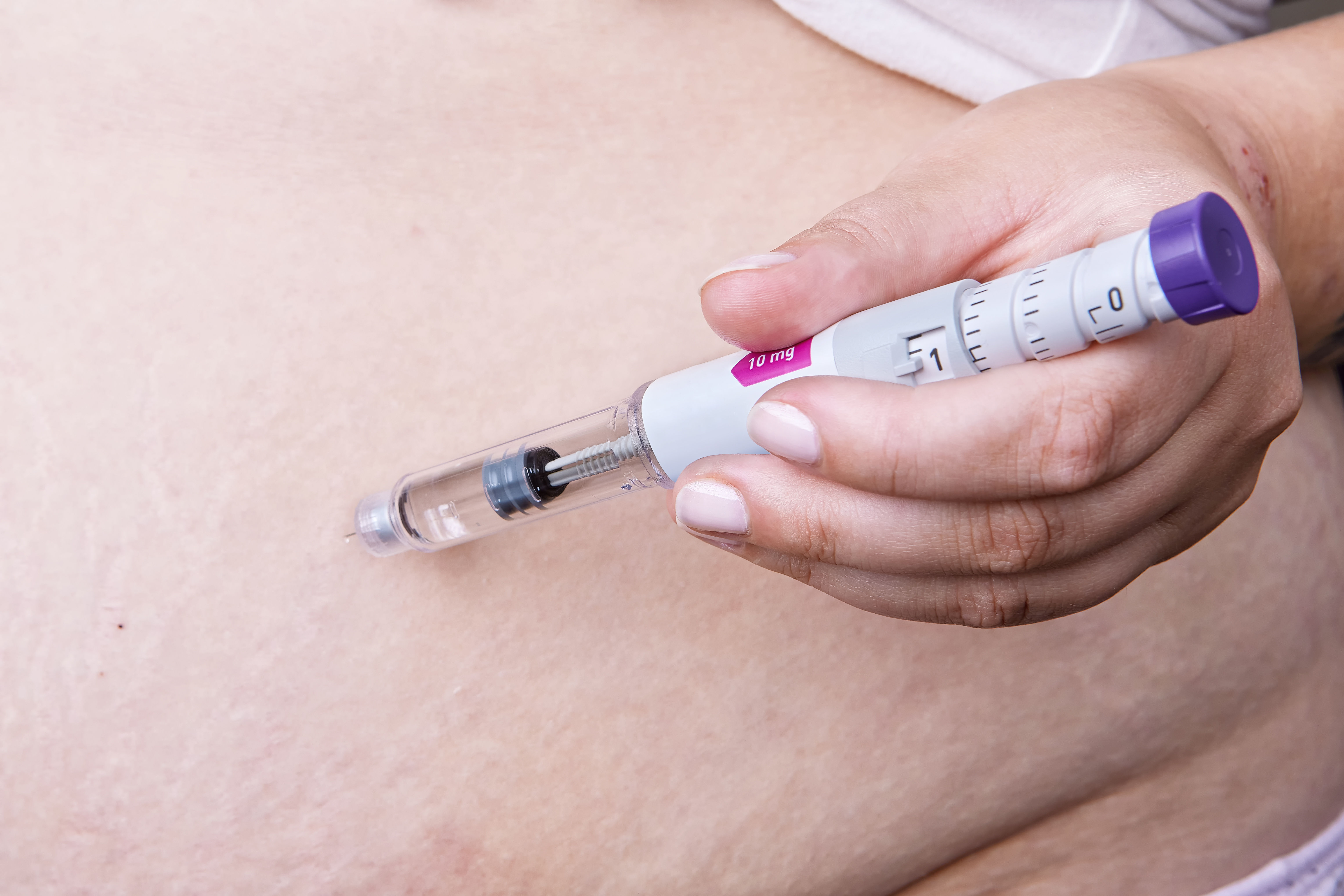Is Bariatric Surgery Safe Weighing the Risks, Benefits, and Reality
Explore the safety of bariatric surgery, including potential risks, benefits, and what to expect for a safe and successful weight-loss journey.

Written by Dr. Md Yusuf Shareef
Reviewed by Dr. D Bhanu Prakash MBBS, AFIH, Advanced certificate in critical care medicine, Fellowship in critical care medicine
Last updated on 26th Sep, 2025

Introduction
The decision to undergo bariatric surgery is a significant one, often accompanied by a crucial question: "Is it safe?" It's a valid concern. Any surgical procedure carries inherent risks, and it's natural to feel apprehensive. However, the answer isn't a simple "yes" or "no." The safety of bariatric surgery is a complex equation that involves the specific procedure, your health profile, the skill of your surgical team, and your commitment to long-term lifestyle changes. In reality, modern bariatric surgery is remarkably safe, with mortality rates lower than many common operations like gallbladder removal. This article will move beyond the fear and provide a clear-eyed view of the safety of bariatric surgery. We'll break down the potential risks, celebrate the life-saving benefits, and explore the critical factors that tip the scales toward a successful outcome. Our goal is to empower you with the knowledge to have an informed conversation with your doctor about whether this path is right for you.
What Does "Safe" Really Mean in Bariatric Surgery?
When we ask if something is safe, we're often asking if it's free from danger. In medicine, safety is about risk versus benefit. A treatment is considered "safe" when its potential benefits significantly outweigh its potential harms for a well-selected patient. For someone with a BMI over 40, or over 35 with serious weight-related health issues, the risks of not having surgery—such as heart disease, stroke, and diabetes—are often far greater than the risks of the procedure itself.
The Evolution of Safety: From Open to Laparoscopic Surgery
Bariatric surgery has undergone a revolutionary transformation. Decades ago, these were extensive "open" surgeries requiring large incisions, leading to longer hospital stays, significant pain, and higher rates of complications. Today, over 90% of bariatric procedures are performed laparoscopically. This minimally invasive technique uses small incisions and a tiny camera, resulting in less pain, reduced risk of infection, shorter hospital stays (often just one night), and a much faster recovery. This advancement is a primary reason why the safety profile of weight loss surgery has improved dramatically.
Comparing Surgical Risk to the Risk of Severe Obesity
It's essential to contextualise the risk. Severe obesity (class III obesity, formerly known as "morbid obesity") is a serious disease that shortens lifespan and diminishes its quality. The risk of dying from a bariatric procedure is approximately 0.1%, or 1 in 1,000. Compare this to the long-term risk of premature death from obesity-related conditions, which is significantly higher. For many, surgery is not just about weight loss; it's a treatment for diseases like type 2 diabetes and sleep apnoea, offering a chance to reduce or eliminate medication and reclaim their health.
Consult a Bariatric Surgeon for the best advice
A Deep Dive into the Potential Risks and Complications
Transparency about risks is vital for making an informed decision. Complications can be divided into short-term (surgical) and long-term (lifestyle-related).
Short-Term Surgical Risks (The Immediate Recovery Period)
These are risks associated with any major surgery and the immediate healing process. Here’s what patients may experience in the days following surgery:
1. Common but Manageable: It's normal to experience nausea, vomiting, pain at the incision sites, and minor bleeding. These are typically well-controlled with medication and subside within a few days.
2. Serious but Rare: More significant complications occur in a small percentage of cases. These can include:
• Anastomotic Leak: A leak from the new connections made in the intestine (in gastric bypass) or from the stomach staple line (in sleeve gastrectomy). This is a serious complication that requires prompt recognition and treatment.
• Blood Clots (Deep Vein Thrombosis or Pulmonary Embolism): Surgery can increase the risk of clots forming in the legs (DVT) that can travel to the lungs (PE). Patients are given blood thinners and encouraged to walk soon after surgery to mitigate this risk.
• Infection: Infections at the incision site or inside the abdomen can occur but are less common with laparoscopic techniques.
Long-Term Risks and Nutritional Considerations
The journey doesn't end after recovery. The altered digestive system requires lifelong attention. Here are the key long-term challenges patients should be aware of:
• The Lifelong Need for Supplementation: After surgery, your body's ability to absorb nutrients changes. This makes daily vitamin and mineral supplements (like B12, iron, calcium, and vitamin D) non-negotiable to prevent deficiencies. Regular blood tests are essential to monitor levels.
• Dumping Syndrome and Other Side Effects: Particularly common after gastric bypass, dumping syndrome occurs when food moves too quickly from the stomach into the small intestine, causing nausea, cramping, diarrhoea, and dizziness. While unpleasant, it can actually help patients avoid high-sugar foods.
The Numbers Don't Lie: Bariatric Surgery Safety Statistics
Data provides the most objective view of safety. According to the American Society for Metabolic and Bariatric Surgery (ASMBS), the risk of death during bariatric surgery is very low.
Mortality Rates: Putting the Fear to Rest
The average 30-day mortality rate for bariatric surgery is approximately 0.1%, making it as safe as or safer than common procedures like gallbladder removal or hip replacement. This risk is even lower when the surgery is performed at an accredited center by an experienced surgeon.
Success Rates and Improvement in Co-morbidities
Safety isn't just about surviving the procedure; it's about thriving afterward. Studies consistently show that bariatric surgery leads to:
1. Significant Weight Loss: Patients typically lose 50-70% of their excess weight.
2. Resolution of Type 2 Diabetes: Up to 80% of patients see complete resolution or major improvement.
3. Improvement in Other Conditions: High blood pressure, sleep apnoea, and high cholesterol often improve or resolve completely, drastically reducing long-term health risks.
Key Factors That Determine Your Personal Safety Profile
Your individual risk is not a fixed number. It's influenced by several key factors.
Your Health Status: The Role of BMI and Co-morbidities
A thorough pre-operative evaluation is critical. Your team will assess your heart, lung, and liver health to ensure you can safely undergo anaesthesia and surgery. Patients with fewer severe co-morbidities generally have lower surgical risks.
The Surgeon and Center's Experience: Why Expertise Matters
This is perhaps the most critical factor. Choosing a surgeon who performs a high volume of bariatric procedures at an accredited Bariatric Surgery Center of Excellence significantly improves outcomes. These centers have demonstrated a commitment to safety protocols, multidisciplinary support, and optimal patient care. If you're wondering how to choose a safe bariatric surgeon, start by looking for these credentials.
Your Commitment: The Non-Negotiable Role of Follow-Up Care
Safety is a partnership. Your commitment to attending all follow-up appointments, taking prescribed supplements, adopting new eating habits, and incorporating physical activity is essential for preventing long-term complications and ensuring success. This lifelong commitment is a key part of the safety equation.
Comparing the Safety of Different Bariatric Procedures
Not all procedures carry the same risk profile. Here’s a brief comparison of the most common ones:
1. Gastric Sleeve (Sleeve Gastrectomy): This is the most popular procedure. It has a lower risk of long-term nutritional deficiencies compared to gastric bypass but a slightly higher risk of gastroesophageal reflux disease (GERD). Its safety profile is generally excellent.
2. Gastric Bypass (Roux-en-Y): A very effective procedure, especially for diabetes. It carries a slightly higher short-term risk due to the complexity of the intestinal re-routing and a higher risk of long-term nutritional deficiencies requiring diligent supplementation.
3. Adjustable Gastric Band: Once popular, this procedure is now less common due to higher long-term complication rates and lower efficacy compared to the sleeve or bypass.
The Safety Net: The Multidisciplinary Team Approach
True safety in bariatric surgery is achieved through a team effort. A reputable program will provide access to a multidisciplinary team including your surgeon, a dietitian, a psychologist, and an exercise physiologist. This team guides you through every step—from pre-operative preparation to lifelong maintenance—ensuring you have the knowledge and support needed for a safe and successful journey. If you have underlying health conditions that need monitoring before surgery, consulting a doctor online with Apollo24|7 can be a convenient first step to discuss your eligibility and get preliminary advice.
Conclusion
So, is bariatric surgery safe? The evidence strongly suggests that for carefully selected patients treated by expert teams, it is a safe and profoundly effective treatment for severe obesity. While it is not without risks, these are generally manageable and pale in comparison to the long-term dangers of living with untreated obesity. The key to maximising safety lies in education, choosing the right medical team, and embracing the necessary lifestyle changes. This surgery is not a quick fix but a powerful tool that, when used correctly within a supportive framework, can lead to a longer, healthier, and more fulfilling life. If you are considering this path, your first step is to seek information from reputable sources and have an open conversation with a qualified healthcare professional. If you are struggling with obesity-related health issues, consulting a bariatric specialist can help you understand if this life-changing step is right for you.
Consult a Bariatric Surgeon for the best advice
Consult a Bariatric Surgeon for the best advice

Dr. Kiran K J
General and Laparoscopic Surgeon
18 Years • MBBS, MS, FMAS, DMAS (Fellow & Dip in Min. Access surg.), FALS- Bariatric & Robotic Surgery
Bengaluru
Apollo Hospitals Bannerghatta Road, Bengaluru
(50+ Patients)

Dr. Anand Ravi
General Physician
2 Years • MBBS
Bengaluru
PRESTIGE SHANTHINIKETAN - SOCIETY CLINIC, Bengaluru

Dr. Saket Goel
General Surgeon
27 Years • MBBS, MS (Surg.)
Delhi
Apollo Hospitals Indraprastha, Delhi
(125+ Patients)

Dr. Sunil Kaul
General Surgeon
30 Years • MBBS, MS, FICS, FIMSA, FMAS
Delhi
Apollo Hospitals Indraprastha, Delhi
(25+ Patients)

Prof Dr Pawanindra Lal
Minimal Access/Surgical Gastroenterology
31 Years • MS, DNB, FCLS, FRCS(Ed,Glasg,Eng,Irel), FACS, FAMS, FFSTEd
Delhi
Apollo Hospitals Indraprastha, Delhi
(100+ Patients)
Consult a Bariatric Surgeon for the best advice

Dr. Kiran K J
General and Laparoscopic Surgeon
18 Years • MBBS, MS, FMAS, DMAS (Fellow & Dip in Min. Access surg.), FALS- Bariatric & Robotic Surgery
Bengaluru
Apollo Hospitals Bannerghatta Road, Bengaluru
(50+ Patients)

Dr. Anand Ravi
General Physician
2 Years • MBBS
Bengaluru
PRESTIGE SHANTHINIKETAN - SOCIETY CLINIC, Bengaluru

Dr. Saket Goel
General Surgeon
27 Years • MBBS, MS (Surg.)
Delhi
Apollo Hospitals Indraprastha, Delhi
(125+ Patients)

Dr. Sunil Kaul
General Surgeon
30 Years • MBBS, MS, FICS, FIMSA, FMAS
Delhi
Apollo Hospitals Indraprastha, Delhi
(25+ Patients)

Prof Dr Pawanindra Lal
Minimal Access/Surgical Gastroenterology
31 Years • MS, DNB, FCLS, FRCS(Ed,Glasg,Eng,Irel), FACS, FAMS, FFSTEd
Delhi
Apollo Hospitals Indraprastha, Delhi
(100+ Patients)
More articles from Weight Loss
Frequently Asked Questions
1. What is the safest type of bariatric surgery?
While all procedures have excellent safety records, the gastric sleeve is often cited as having a very favorable short-term safety profile due to its relative simplicity. However, the 'safest' procedure is the one that is best for your specific health profile and goals, which your surgeon will help determine.
2. Can you still lead a normal life after bariatric surgery?
Yes, but 'normal' will be a new, healthier normal. You will eat smaller portions, need to chew thoroughly, take daily vitamins, and exercise regularly. Most people find they can enjoy a wide variety of foods and social activities, often with more energy and freedom than before.
3. What is the leading cause of death after bariatric surgery?
In the extremely rare event of a death within 30 days of surgery, it is most often related to a serious complication like a leak leading to infection or a pulmonary embolism (blood clot in the lungs). Long-term, the surgery significantly reduces the risk of death from heart disease, diabetes, and cancer.
4. How long does it take to recover from bariatric surgery?
Most people return to normal activities within 2-4 weeks. Laparoscopic surgery allows for a much quicker recovery. However, full internal healing and adaptation to new eating patterns take several months.
5. Is the weight loss from bariatric surgery permanent?
The surgery provides a powerful tool for significant and sustained weight loss. Studies show most patients maintain a loss of over 50% of their excess weight 10-15 years after surgery. Long-term success depends on adhering to dietary and lifestyle recommendations.



.webp)
